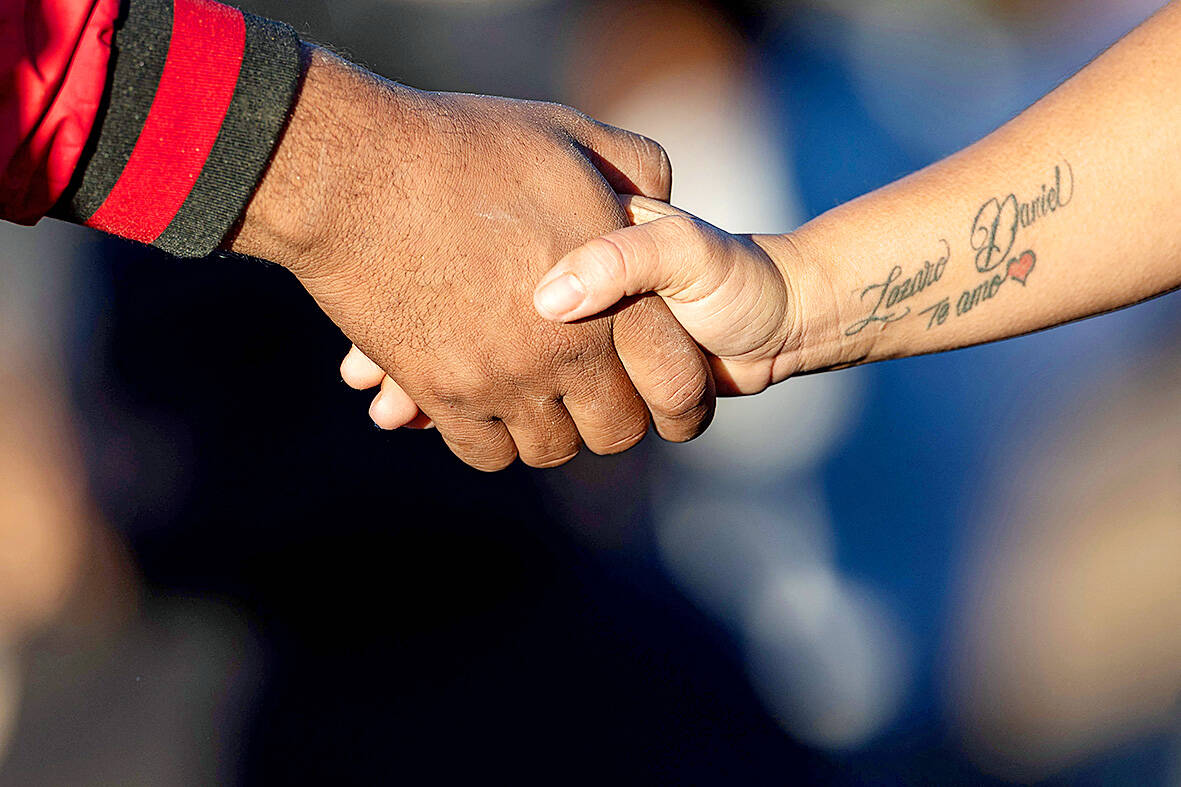Trials are under way in Britain for the first-ever male contraceptive pill. It’s a promising medication, one that puts more power in men’s hands to prevent unwanted pregnancy with high reliability and, so far, few reported side-effects. The trials seek to answer a basic medical question: is this drug safe and effective? But the manufacturers are no doubt wondering about something else: will men take it?
The overwhelming share of responsibility for preventing pregnancy has always fallen on women. Throughout human history, women have gone to great lengths to prevent pregnancies they didn’t want, and end those they couldn’t prevent. Safe and reliable contraceptive methods are, in the context of how long women have sought to interrupt conception, still incredibly new. Measured by the lifespan of anyone reading this article, though, they are well established, and have for many decades been a normal part of life for millions of women around the world.
CHANGING NORMS

Photo: AFP
To some degree, and if only for obvious biological reasons, it makes sense that pregnancy prevention has historically fallen on women. But it also, as they say, takes two to tango — and only one of the partners has been doing all the work. Luckily, things are changing: thanks to generations of women who have gained unprecedented freedoms and planned their families using highly effective contraception methods, and thanks to men who have shifted their own gender expectations and become more involved partners and fathers, women and men have moved closer to equality than ever.
Among politically progressive couples especially, it’s now standard to expect that a male partner will do his fair share of the household management and childrearing (whether he actually does is a separate question, but the expectation is there). What men generally cannot do, though, is carry pregnancies and birth babies.
And so, for years, women have also been asking when modern medicine will allow men to do their part in at least planning for those babies, and preventing mistimed or unwanted pregnancies. Now that the moment seems near, a male contraceptive will be another test of whether heterosexual men are actually willing to take on the shared responsibilities of adult life, or whether they’re satisfied leaving women doing all the work of controlling when and whether to reproduce.
Few inventions in modern history have changed life and society as much as the birth control pill. The ability to prevent unintended pregnancy, and thereby major life-altering interruptions to education, work, finding a partner and just about every other aspect of adult life, revolutionized opportunities and outcomes for women worldwide.
In nations where women were first able to get their hands on the birth control pill, gender equality vastly improved: women surged on to college campuses and into the workforce; age of first marriage went up and average number of children went down; women and their children lived longer, healthier, better-educated lives; and national economies benefited from the many more women in the workforce.
These patterns have now been repeated globally, and the links between contraception access and better outcomes in education, economics, gender equality and health are so well-established that increasing contraception access is now a basic cornerstone of any development agenda.
Contraception options have also expanded well beyond the pill, to patches and implants and injections. IUDs are among the most effective forms of contraception, and along with better access to other contraception tools, have meant that more women today are better able than at any point in human history to chart their own lives: to go to school, to marry for love, to live alone, to adventure, to work for pay, to live independently.
The ability to plan one’s family has resulted in children who are also doing better than at any other point in history. They live longer, are healthier, are more likely to be in school, are less likely to suffer from a host of ills.
Men, too, have benefited handsomely from the contraception revolution, and not just because it’s much easier than ever before to have sex for fun and pleasure. Countless men have avoided unintended or unwanted fatherhood, have been able to partner or marry out of love and not obligation, have financially benefited from partners who share in earning the household’s income, and have socially and intellectually benefited from living in a society where women and men alike are teachers, professors, leaders, colleagues, culture-makers and friends.
BURDEN OF PREGNANCY
Yet when it comes to reproduction — doing it, or preventing it — we have asked virtually nothing of men. For 75 years now, it’s been women’s bodies that have shouldered the burden of preventing pregnancies. It’s women who have set their alarms to take pills, gritted their teeth through the usually unmedicated and often-brutal pain of IUD insertion, and sometimes dealt with the side-effects of contraceptive hormones: mood swings, weight gain, bleeding, headaches, nausea and more.
To be clear, many women experience no side-effects at all, or only mild ones that dissipate quickly. But a lot of women have suffered through some serious discomfort because there simply weren’t other reliable options.
And many of us have wondered when, exactly, science would catch up with rapid gains in gender equality, and ask men to take on a fraction of the responsibility for planning families.
Yes, there are condoms. But that thousands-years-old technology — which, by the way, is not a male contraceptive, but rather a tool both parties use and that impacts both of their physical experience — has its limitations.
Condoms are incredibly effective, and a great one-stop solution for radically decreasing the risk of both sexually transmitted infections (STIs) and pregnancies. But particularly for monogamous couples who are less worried about STIs, condoms can be a pain. They interrupt intimacy. Many people feel they make sex less physically pleasurable. And they only work if you use them properly, which means always having one on hand. It’s no wonder that a whole lot of people have preferred the convenience of a pill.
The other option for men: vasectomy. That’s an option more men should avail themselves of, especially if they are done having children. Women’s bodies take so many hits when it comes to preventing pregnancies and then carrying them, birthing babies and feeding them; the least men can do is get a little snip. In fairness, however, a lot of people — women included — hesitate at even minor surgeries, and worry about procedures that, while often reversible, are not guaranteed to be so.
Men, like so many women, may very well want to spend the first decade or two of their reproductive-age lives preventing pregnancy, then change course and welcome it, and then go back to preventing it. And they deserve more options than they have.
The male pill currently in trials is not the first attempt at making a contraceptive for men. It is, though, the first one that promises to lack significant side-effects. As it turns out, many of the things women routinely tolerate to prevent pregnancy — mood swings, weight gain — are simply unbearable for the less-fair sex.
Good thing most men can’t get pregnant — it doesn’t sound like they could take it. But if this pill is approved, they’ll at least have a greater ability to be equal participants in their sexual and romantic relationships, and have greater say over their own reproductive futures. That’s something women have spent generations fighting for.
And if this drug gets approved, women will get some very useful information about the men in their lives, and particular those with whom they have romantic relationships: do those men believe that they have an equal responsibility for pregnancy prevention, and are they willing to act accordingly? And if not, are those men with whom women should want to share any part of their sexual, romantic, or reproductive lives?

The Directorate-General of Budget, Accounting and Statistics (DGBAS) told legislators last week that because the Chinese Nationalist Party (KMT) and Taiwan People’s Party (TPP) are continuing to block next year’s budget from passing, the nation could lose 1.5 percent of its GDP growth next year. According to the DGBAS report, officials presented to the legislature, the 2026 budget proposal includes NT$299.2 billion in funding for new projects and funding increases for various government functions. This funding only becomes available when the legislature approves it. The DGBAS estimates that every NT$10 billion in government money not spent shaves 0.05 percent off

Dec. 29 to Jan. 4 Like the Taoist Baode Temple (保德宮) featured in last week’s column, there’s little at first glance to suggest that Taipei’s Independence Presbyterian Church in Xinbeitou (自立長老會新北投教會) has Indigenous roots. One hint is a small sign on the facade reading “Ketagalan Presbyterian Mission Association” — Ketagalan being an collective term for the Pingpu (plains Indigenous) groups who once inhabited much of northern Taiwan. Inside, a display on the back wall introduces the congregation’s founder Pan Shui-tu (潘水土), a member of the Pingpu settlement of Kipatauw, and provides information about the Ketagalan and their early involvement with Christianity. Most

The People’s Republic of China (PRC) was out in force in the Taiwan Strait this week, threatening Taiwan with live-fire exercises, aircraft incursions and tedious claims to ownership. The reaction to the PRC’s blockade and decapitation strike exercises offer numerous lessons, if only we are willing to be taught. Reading the commentary on PRC behavior is like reading Bible interpretation across a range of Christian denominations: the text is recast to mean what the interpreter wants it to mean. Many PRC believers contended that the drills, obviously scheduled in advance, were aimed at the recent arms offer to Taiwan by the

Like many retirement communities, The Terraces serves as a tranquil refuge for a nucleus of older people who no longer can travel to faraway places or engage in bold adventures. But they can still be thrust back to their days of wanderlust and thrill-seeking whenever caretakers at the community in Los Gatos, California, schedule a date for residents — many of whom are in their 80s and 90s — to take turns donning virtual reality headsets. Within a matter of minutes, the headsets can transport them to Europe, immerse them in the ocean depths or send them soaring on breathtaking hang-gliding expeditions